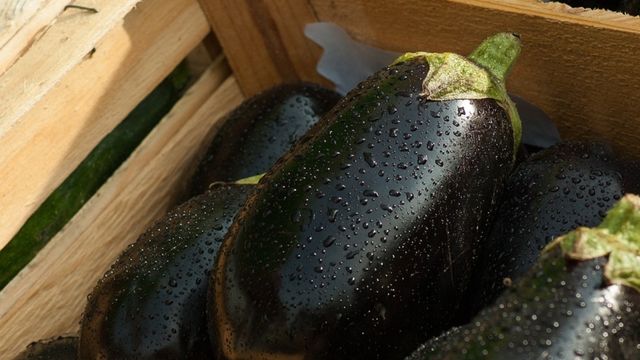Eggplant needs in Greenhouses
There are two types of eggplant needs in greenhouses, some of them are environmental needs and others are agricultural, when growing any crop, whether inside or outside the greenhouse,
You must familiarize yourself with all the environmental and climatic conditions that this plant needs for proper growth.
These needs usually include the elements of heat, humidity, ventilation, light, and others.
And here, through our article in Mourouj Al-Riyadh, are the most prominent and important requirements for growing eggplant in the greenhouse.
The amount of light – eggplant needs in greenhouses
As for the required amount of light, the effect of the photoperiod on eggplant flowering is very limited.
Because it always begins flowering after the formation of 6 to 14 leaves, which depends on how early or late the cultivar is.
temperature in greenhouses
Eggplant is one of the most sensitive crops to cold, as well as plants that have the ability to withstand high temperatures.
The main condition for the proper growth of eggplant warm weather.
The optimum temperature for its growth is between 32:42 degrees Celsius, and it takes about 10 days to germinate.
While its seeds cannot grow in greenhouses below 15 degrees or above 35 degrees.
humidity
There are some changes in the yield due to relative humidity levels.
But because the humidity continues to rise day and night; It caused a decrease in the number of fruits and thus a decrease in yield.
Also, the continuously low humidity during the day and night times; It caused dryness in the cup of the fruit.
Although there are no negative effects of high relative humidity on the quality of the fruits, it leads to an increase in the crop infection with botrytis fungus.
Irrigation and fertilization of eggplant
As for the irrigation and fertilization systems used in eggplant cultivation in greenhouses, they are as follows:
The eggplant responds to good irrigation, but one must avoid exaggerating the amounts of irrigation used. So that the roots do not rot.
As for composting; The fruits of eggplant need 60-45% of the nitrogen absorbed by the plant, as well as 60-50% of phosphorus, as well as 70-55% of potassium.
It also needs stable feeding from all of these elements, until the end of the harvest season.
Eggplant fruits respond to fertilization with drip irrigation water.
Eggplant inside greenhouses also needs many agricultural activities and operations to ensure that it is harvested in the required quantity and quality.
Read more about: Cultivation of eggplant in greenhouses

